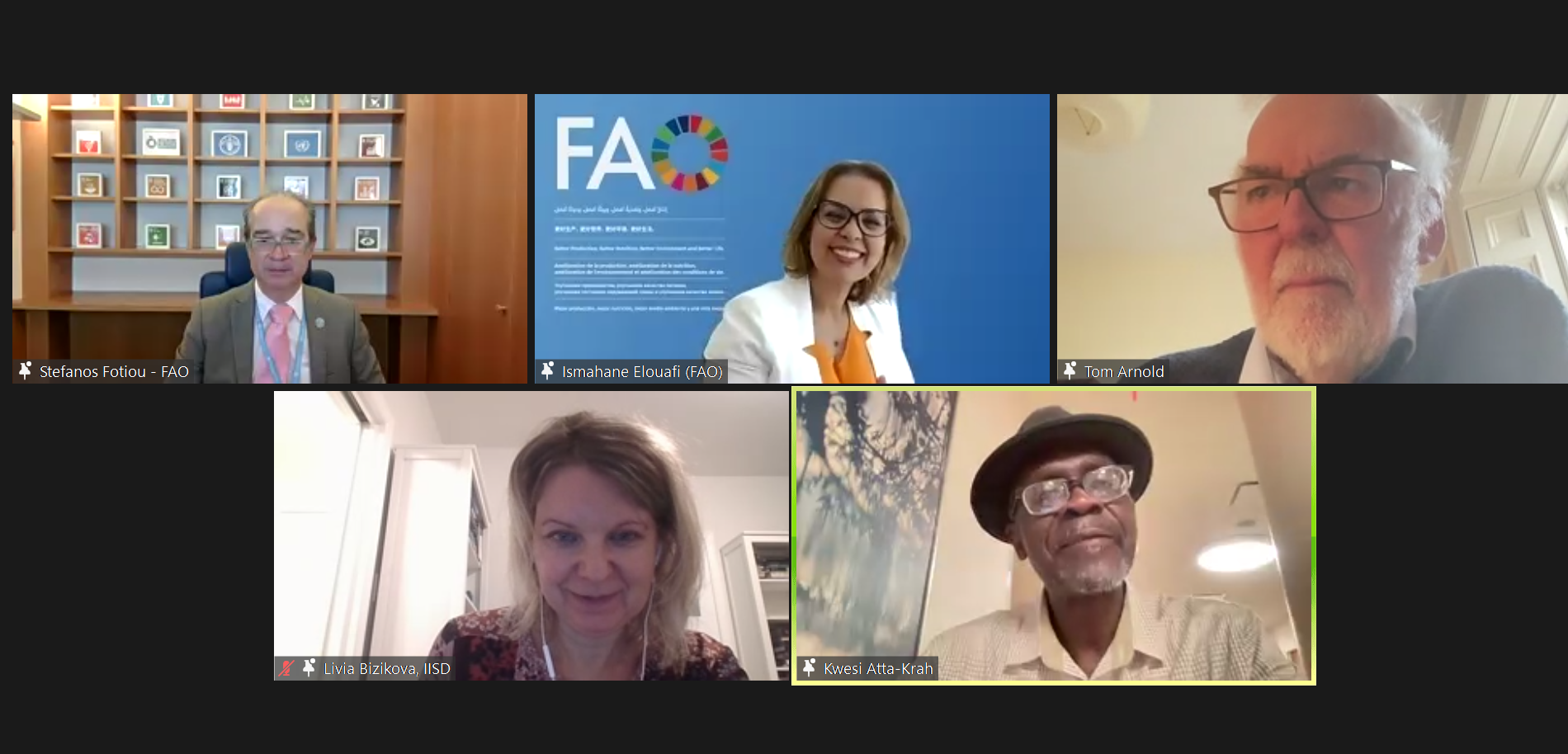SEED FUNDING JOINT PROGRAMMES
Egypt
Strengthening Sustainable and Resilient Food and Nutrition Systems in Egypt for SDG Acceleration




PROJECT TITLE | Strengthening Sustainable and Resilient Food and Nutrition Systems in Egypt for SDG Acceleration |
| Context | Egypt engaged actively in the 2021 Food Systems Summit process, convening a national dialogue and developing national pathways with recommended interventions for improving food security and nutrition by 2030. To enhance multi-sectorial coordination and spearhead the transformation process, the Government created a National Committee for Food and Nutrition Systems chaired by the Prime Minister and bringing together several ministries to coordinate joint actions. Strengthening coordination mechanisms, fostering multi-stakeholder partnerships, consolidating accountability structures, focusing on the availability of evidence, analysis, and data, are identified as key priorities to strengthen the food systems governance structure in Egypt. |
| PUNOs | WFP, FAO, UNICEF |
| Contribution to SDGs | SDG 2 Zero Hunger, SDG 3 Good Health and Well-being, 12 Responsible Consumption and Production. |
| Contribution to other SDG transitions | Climate, biodiversity, pollution |
| Duration | June 2024 – May 2025 |
| Expected financial leverage | $87,000 (PUNO co-financing) |
| Alignment with SG Call to Action | Policy integration; Food systems governance; Research, data, technology and innovation; Inclusive and participatory design; Private sector engagement |
| Outcomes | The JP contributes to strengthening policy and governance frameworks for food systems transformation and generating evidence and analysis on key dimensions of food systems to inform decision-making, supporting the work of the National Committee for Food and Nutrition Systems. The JP complements the government’s flagship program “Country Platform for the Nexus of Water, Food and Energy”, which provides a mechanism to mobilize climate finance and private investments. |
| Partners |
|
| Outputs |
|
Applying Systems Thinking for Food Systems Transformation

From left to right: Stefanos Fotiou, Director of the FAO Office of SDGs and UN Food Systems Coordination Hub; Ismahane Elouafi, Chief Scientist at FAO; Tom Arnold, Ireland's Special Envoy for Food Systems 2021-2022; Livia Bizikova, Lead II, Monitoring and Governance Tracking Progress Program at IISD; Kwesi Atta-Krah, Senior Advisor/Consultant, Country and Regional Engagement, One CGIAR-Continental Africa Directorate, IITA.
On October 5, 2023, the UN Food Systems Coordination Hub hosted a webinar titled "Applying Systems Thinking for Food Systems Transformation," shedding light on the pivotal role of systems thinking in achieving the Sustainable Development Goals (SDGs) through the transformation of food systems.
Ms. Ismahane Elouafi, Chief Scientist at FAO, set the stage by emphasizing the critical role of systems thinking in understanding the interdependencies and interconnections between various sectors. With over 3 billion people employed in agrifood systems, she stressed that “harnessing systems thinking can empower us to unlock the full potential of these systems.”
Operationalizing systems thinking
The discussion began with a focus on bridging the gap between theory and practical applications of systems thinking for policymakers. Panel members emphasized the intricate nature of food systems and how systems thinking can offer a holistic approach to problem-solving, enabling a better understanding of connections, trade-offs, and unintended consequences. “We can use systems thinking as a sort of diagnostic tool,” explained Ms. Livia Bizikova from the International Institute for Sustainable Development (IISD). Mr. Tom Arnold, Ireland's Special Envoy for Food Systems 2021-2022, shared his experience in developing Ireland's national strategy for sustainable food systems, recognizing the interconnectedness of production, consumption, environment, and health. Mr. Kwesi Atta-Krah, from One CGIAR-Continental Africa Directorate IITA, stressed the importance collaboration across ministries to enable synergistic outcomes, emphasizing that “the whole must be more than the sum of the parts and if you bring together all the elements but you don't deal with the issue of 'how' , then you can result in negative synergies."
Identifying key priorities
The second discussion focused on prioritizing elements within food systems to enhance sustainability. Mr. Arnold underlined the importance of involving all stakeholders in strategy development and governments' role in sustaining momentum towards implementation. He stressed the need for a balance between economic, environmental, and social sustainability in strategies.
Ms. Bizikova emphasized the importance of aligning food systems transformation strategies with national policy priorities and resource allocation. Mr. Atta-Krah called for recognizing diversity among actors within food systems and fostering collaborative efforts between research and delivery through multi-stakeholder and innovative platforms.
Harnessing intergovernmental processes
Shifting to the role of intergovernmental processes in promoting a systems thinking approach for global governance of food systems, Mr. Atta-Krah emphasized the need for inter-ministerial committees at the national level. “These committees should facilitate cross-cutting discussions to address food systems comprehensively.” Mr. Arnold acknowledged the contributions of intergovernmental processes, such as the UN Food Systems Summits, in promoting food systems thinking and highlighted the upcoming COP28, stating that “for the first time ever, a COP Presidency has talked about the importance of linking policies for climate and food."
In his closing remarks, Mr. Stefanos Fotiou, Director of the FAO Office of SDGs and of the UN Food Systems Coordination Hub, underscored the need to make systems thinking a practical tool for policymakers during policy design, evaluation, and implementation. He further stressed that “we need a substantial effort to change the way we think, not only about policy design, but also about budgeting to ensure effective policy implementation."
This webinar is part of a series led by the UN Food Systems Coordination Hub. The next one will be on Innovating for Sustainable Food Systems Transformations: Scaling Success Stories Beyond Technology, which will take place on 23 November 2023 – register here.
